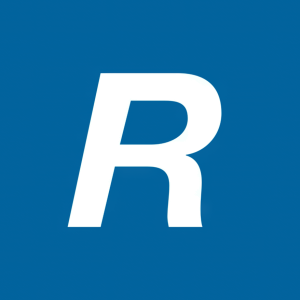75th Annual Regeneron International Science and Engineering Fair Awards Teen Scientists from Around the World More Than $9 Million in 2025 Competition
Rhea-AI Summary
At the 75th Regeneron International Science and Engineering Fair (ISEF), nearly 1,700 young scientists from 48 U.S. states and 60+ countries competed for over $9 million in awards. The top prize, the $100,000 George D. Yancopoulos Innovator Award, went to Adam Kovalčík from Slovakia for developing a more efficient and cost-effective method to produce the antiviral drug galidesivir, reducing production costs from $75/gram to $12.50/gram.
Other major winners included Benjamin Davis ($75,000) for a desktop plastic recycling system, Siyaa Poddar ($75,000) for toxic dust detection technology, and a team of three students ($50,000) for developing a brain-controlled bionic prosthetic leg. The competition, sponsored by Regeneron Pharmaceuticals (NASDAQ: REGN), celebrated its milestone 75th year of fostering STEM innovation and has provided STEM experiences to over 3.2 million students since 2020.
Positive
- Regeneron has exceeded its goal of providing STEM experiences to 2.5 million students by 2025, reaching over 3.2 million students since 2020
- Company demonstrates long-term commitment to fostering scientific innovation and education through significant financial investment ($9 million in awards)
- Strong global reach and impact through involvement of students from 48 U.S. states and 60+ countries
Negative
- None.
News Market Reaction – REGN
On the day this news was published, REGN gained 1.59%, reflecting a mild positive market reaction.
Data tracked by StockTitan Argus on the day of publication.
Adam Kovalčík, 19, receives
TARRYTOWN, N.Y. and WASHINGTON, May 16, 2025 (GLOBE NEWSWIRE) -- Regeneron Pharmaceuticals, Inc. (NASDAQ: REGN) and Society for Science (the Society) announced that Adam Kovalčík, 19, of Dulovce, Slovakia, won the
The top winners were recognized during two award ceremonies: the Special Awards on May 15 and the Grand Awards Ceremony on May 16. In total, more than
Adam Kovalčík, 19, of Dulovce, Slovakia, won first place and received the
Benjamin Davis, 16, of Wrentham, Massachusetts, received the
Siyaa Poddar, 16, of Chandler, Arizona, received the
Samuel Skotnikov, 17, of Highland Village, Texas, and Chanyoung Kim and Eeshaan Prashanth, both 16, of Flower Mound, Texas, received the
"Congratulations to the winners of this year’s Regeneron International Science and Engineering Fair," said Maya Ajmera, President and CEO of Society for Science and Executive Publisher of Science News. "I am deeply inspired by the creative, passionate and dedicated finalists from around the world who have come together—across borders, cultures and scientific disciplines —in the shared pursuit of science. Adam’s research into antiviral medicines has the potential to change the impact and scale of how people can benefit from such important life-saving treatments. His research gives me great hope for the future of global health and scientific innovation.”
Now in its landmark 75th year, Regeneron ISEF remains the premier global stage for the next generation of scientists and engineers. This milestone year celebrates decades of scientific discovery, boundary-pushing innovation and international collaboration, uniting students from around the world in a powerful exchange of ideas. Through Regeneron ISEF and other STEM programming, Regeneron and the Society are fostering the next generation of STEM leaders who are pioneering solutions to improve our world. Since 2020, Regeneron has provided STEM experiences to over 3.2 million students, surpassing its goal of 2.5 million by 2025.
"Congratulations to this year’s extraordinary Regeneron ISEF finalists and winners,” said George D. Yancopoulos, M.D., Ph.D., co-Founder, Board co-Chair, President and Chief Scientific Officer of Regeneron. “My own high school science project lit a fire in me that changed the course of my life. Today, I see these students carrying that same spark forward by asking bold questions, pushing boundaries and proving that innovative science can take on humanity’s biggest challenges.”
Other top honors from the competition include:
XinYan Chen, 17, of San Gabriel, California, received the
Aleksandra Petkova, 18, of Sofia, Bulgaria, received the
Cory Seelenfreund, 17, of New Rochelle, New York, received the
Uma Sthanu, 17, of Austin, Texas, received the
Pragathi Kasani-Akula, 17, of Cumming, Georgia; Aarushi Pandey, 17, of Conroe, Texas; and Vrishank Chandrasekhar, 18, of San Jose, California, received the Dudley R. Herschbach SIYSS Award, which provides finalists an all-expense paid trip to attend the Stockholm International Youth Science Seminar during Nobel Week in Stockholm, Sweden.
Ethan Yan, 15, of Burlingame, California, and Abigail Qi, 16, of Baton Rouge, Louisiana, received the EU Contest for Young Scientists Award. Their projects will represent Regeneron ISEF at the EU Contest for Young Scientists to be held this September in Riga, Latvia.
For more information about the top winners and access to visual assets visit our media kit: https://www.societyforscience.org/regeneron-isef-2025-media-kit/
The full list of Special Award ISEF 2025 Finalists can be found at: https://www.societyforscience.org/press-release/regeneron-isef-2025-special-awards-winners
In addition to the Top Award winners, more than 450 finalists received awards and prizes for their innovative research, including “First Award” winners, who each received a
The following lists the First Award winners for each of the 22 categories, from which the Top Awards were chosen:
Animal Sciences, sponsored by Society for Science
- Matthew Lo, 16, of Berwyn, Pennsylvania
Behavioral and Social Sciences, sponsored by Society for Science
- Ameya Kharade, 16, of Nashua, New Hampshire
- Jesse Rumball-Smith, 17, of Wellington, New Zealand
Biochemistry, sponsored by Regeneron
- Pragathi Kasani-Akula, 17, of Cumming, Georgia
Biomedical and Health Sciences, sponsored by Regeneron
- Edward Kang, 17, of Upper Saddle River, New Jersey
- Uma Sthanu, 17, of Austin, Texas
Biomedical Engineering, sponsored by Regeneron
- Chanyoung Kim, 16, of Flower Mound, Texas
- Eeshaan Prashanth, 17, of Flower Mound, Texas
- Samuel Skotnikov, 17, of Highland Village, Texas
Cellular and Molecular Biology, sponsored by Regeneron
- Lilly Horowitz, 17, of Jericho, New York
Chemistry, sponsored by Arc Institute
- Adam Kovalčík, 19, of Dulovce, Slovakia
Computational Biology and Bioinformatics, sponsored by Regeneron
- Arnav Sharma, 15, of Troy, Michigan
- Samarth Dunakhe, 15, of Chandler, Arizona
- Aryav Das, 16, of Noblesville, Indiana
- Qianheng Xu, 16, of Millburn, New Jersey
Earth and Environmental Sciences, sponsored by Society for Science
- Lakshmi Agrawal, 17, of Bellevue, Washington
- Miriam Haddad, 18, of Saginaw, Michigan
Embedded Systems, sponsored by HP
- Maya Trutschl, 17, of Shreveport, Louisiana
Energy: Sustainable Materials and Design, sponsored by Siemens Energy
- Oliver Wang, 17, of Falls Church, Virginia
Engineering Technology: Statics and Dynamics, sponsored by Howmet Aerospace Foundation
- Benjamin Davis, 16, of Wrentham, Massachusetts
Environmental Engineering, sponsored by Jacobs
- Bennett Huang, 16, of Great Falls, Virginia
- Jason Pan, 16, of Great Falls, Virginia
- XinYan Chen, 17, of San Gabriel, California
Materials Science, sponsored by Howmet Aerospace Foundation
- Siyaa Poddar, 16, of Chandler, Arizona
Mathematics, sponsored by Akamai Foundation
- Cory Seelenfreund, 17, of New Rochelle, New York
Microbiology, sponsored by Schattner Foundation
- Abigail Qi, 16, of Baton Rouge, Louisiana
Physics and Astronomy, sponsored by Jane Street
- Aiden Kwon, 17, of Rolling Hills Estates, California
- Aleksandra Petkova, 18, of Sofia, Bulgaria
Plant Sciences, sponsored by Society for Science
- Aarushi Pandey, 17, of Conroe, Texas
Robotics and Intelligent Machines, sponsored by Liquid AI
- Chinmayi Goyal, 17, of Yorktown, New York
- Timothy Wilson, 18, of Pennant Hills, Australia
Systems Software, sponsored by Microsoft
- Ram Sivaraman, 17, of Acton, Massachusetts
Technology Enhances the Arts, sponsored by Midjourney
- Punnawit Ponnirun, 17, of Chiang Mai, Thailand
- Sataporn Thanapanyakul, 17, of Chiang Mai, Thailand
- Siwakorn Suwannahong, 17, of Chiang Mai, Thailand
Translational Medical Science, sponsored by Regeneron
- Audrey Zheng, 16, of Wexford, Pennsylvania
- Vrishank Chandrasekhar, 18, of San Jose, California
The full list of all award-winning ISEF 2025 finalists is available here.
View all the finalists’ research here.
About the Regeneron International Science and Engineering Fair
The Regeneron International Science and Engineering Fair (Regeneron ISEF), a program of Society for Science celebrating 75 years, is the world’s largest global science competition for high school students. Through a global network of local, regional and national science fairs, millions of students are encouraged to explore their passion for scientific inquiry. Each spring, a group of these students is selected as finalists and offered the opportunity to compete for approximately U.S.
In 2019, Regeneron became the title sponsor of ISEF to help reward and celebrate the best and brightest young minds globally and encourage them to pursue careers in STEM to positively impact the world. Regeneron ISEF is supported by a community of additional sponsors, Adam R. Scripps Foundation, Akamai Foundation, Aramco, Arc Institute, Gordon and Betty Moore Foundation, Howmet Aerospace Foundation, HP, Insaco, Intel, Jacobs, Jane Street, Liquid AI, Microsoft, Midjourney, Schattner Foundation, Siemens Energy, The Ohio State University, Battelle, Caltech, Cesco, Cisco, COSI, GoFundMe, Jeni’s Splendid Ice Creams, JobsOhio, Johnson Energy Holdings. Many are entrepreneurs across a wide range of industries. Learn more at https://www.societyforscience.org/isef/.
About Society for Science
Society for Science is a champion for science, dedicated to promoting the understanding and appreciation of science and the vital role it plays in human advancement. Established in 1921, Society for Science is best known for its award-winning journalism through Science News and Science News Explores, its world-class science research competitions for students, including the Regeneron Science Talent Search, the Regeneron International Science and Engineering Fair and the Thermo Fisher Scientific Junior Innovators Challenge, and its STEM Outreach programming that seeks to ensure that all students have an opportunity to pursue a career in STEM. A 501(c)(3) membership organization, Society for Science is committed to inform, educate and inspire. Learn more at www.societyforscience.org and follow us on Facebook, Twitter, Instagram and Snapchat (Society4Science).
About Regeneron
Regeneron (NASDAQ: REGN) is a leading biotechnology company that invents, develops and commercializes life-transforming medicines for people with serious diseases. Founded and led by physician-scientists, our unique ability to repeatedly and consistently translate science into medicine has led to numerous approved treatments and product candidates in development, most of which were homegrown in our laboratories. Our medicines and pipeline are designed to help patients with eye diseases, allergic and inflammatory diseases, cancer, cardiovascular and metabolic diseases, hematologic conditions, infectious diseases and rare diseases.
Regeneron believes that operating as a good corporate citizen is crucial to delivering on our mission. We approach corporate responsibility with three goals in mind: to improve the lives of people with serious disease, to foster a culture of integrity and excellence and to build sustainable communities. Regeneron is proud to be included on the Dow Jones Sustainability World Index and the Civic 50 list of the most “community-minded” companies in the U.S. Throughout the year, Regeneron empowers and supports employees to give back through our volunteering, pro-bono and matching gift programs. Our most significant philanthropic commitments are in the area of science education, including the Regeneron Science Talent Search and the Regeneron International Science and Engineering Fair (ISEF).
For more information, please visit www.Regeneron.com or follow Regeneron on LinkedIn, Instagram, Facebook or X.
Media Contacts
Joseph Brown, Regeneron
386-283-1323, joseph.brown2@regeneron.com
Gayle Kansagor, Society for Science
703-489-1131, gkansagor@societyforscience.org








